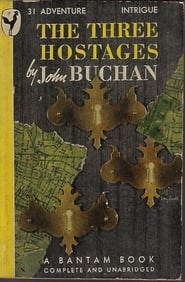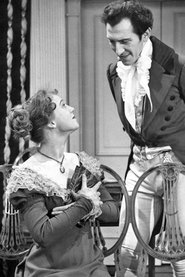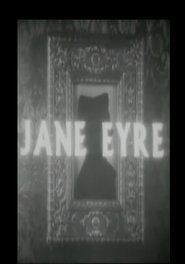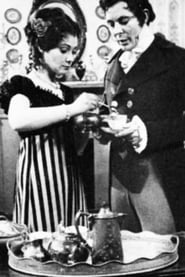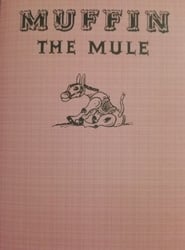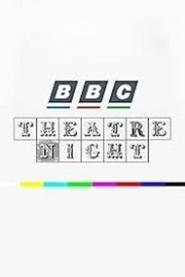Bbc Television TV Series - Page 2
-
The Three Hostages
1952
-
Pride and Prejudice
1952
Pride and Prejudice
1952
-
Jane Eyre
1956
-
Family Affairs
1949
-
Stranger on the Shore
1961
Marie-Hélène Ronsin, a young French teenager, is on her first trip to England as an au pair. Speaking some English, but very shy, she lives with a family in Brighton, and faces the challenges of culture shock. -
Sherlock Holmes
1951
Sherlock Holmes
1951
Sherlock Holmes was a 1951 television series produced by the BBC featuring Alan Wheatley as Sherlock Holmes and Raymond Francis as Dr. Watson. This was the first series of Sherlock Holmes stories adapted for television. -
Storyboard
1961
star 7'Storyboard' is a BBC drama anthology series of 30 minute plays, each written by Troy Kennedy-Martin, the first series created by the prolific screenwriter. The series was followed by Studio 4 -
Emma
1960
Emma
1960
-
Science Is News
1959
Science Is News
1959
-
Telecrime
1938
star 4.5Telecrime was a British drama series that aired on the BBC Television Service from 1938 to 1939 and in 1946. One of the first multi-episode drama series ever made, it is also one of the first television dramas written especially for television not adapted from theatre or radio. Having first aired for 5 episodes from 1938 to 1939, Telecrime returned in 1946, following the resumption of television after World War II, and aired as Telecrimes. A whodunit crime drama, Telecrime showed the viewer enough evidence to solve the crime themselves. Most episodes were written by Mileson Horton. All 17 episodes are lost. Aired live, their preservation was not technically possible at the time. -
Running Wild
1954
Running Wild
1954
-
Hurricane
1961
Hurricane
1961
The story of two newly qualified nurses on their first assignment in the West Indies. -
Robin Hood
1953
Robin Hood
1953
Robin Hood was produced in 1953 by the BBC, during which time these episodes were transmitted live and then re-acted the following Saturday or Sunday in order for a repeat to be shown. However, in some cases, television programmes were recorded onto 16mm film; the age and technology used in order to film titles such as Robin Hood mean that they no longer survive in their original quality, which means that transmission of these episodes by today's standards would be deemed as 'unacceptable'. However, short clips of this serial have aired as recently as 2007 as part of a documentary presented by Jonathan Ross, covering Robin Hood from its beginnings to the more recent BBC production, and shown as an example of television production in the BBC series of documentaries entitled Children's T.V. On Trial The 1950s. The show lasted only for one season, and starred Patrick Troughton as Robin Hood. Later was aired the TV series The Adventures of Robin Hood. -
Muffin the Mule
1946
Muffin the Mule
1946
Muffin the Mule is a puppet character in British television programmes for children. The original programmes featuring the character were presented by Annette Mills, sister of John Mills, and broadcast live by the BBC from their studios at Alexandra Palace from 1946 to 1952. Mills and the puppet continued with programmes that were broadcast until 1955, when Mills died. The series then transferred to ITV in 1956 and 1957. A modern animated version of Muffin appeared on the BBC in 2005. The original mule puppet was created in 1933 by Punch and Judy puppet maker Fred Tickner for husband-and-wife puppeteers Jan Bussell and Ann Hogarth to form part of a puppet circus for the Hogarth Puppet Theatre. The act was soon put away, and the puppet was not taken out again until 1946, when Bussell and Hogarth were working with presenter Annette Mills. Shes named the puppet mule "Muffin", and it first appeared on television in an edition of For The Children broadcast on 20 October 1946. -
Ann and Harold
1938
star 4Ann and Harold is a very early BBC television programme, and ran for five episodes, all broadcast in 1938. It is known to be the world's first drama serial ever transmitted, and explained the trials of a couple named Ann and Harold respectively, and starred Ann Todd. Little else is known about this programme. No material exists of the show today, as it was aired live before any means of recording programmes existed. In fact, it is unknown if even any photographs survive of this programme. -
Theatre Night
1957
-
Australian Walkabout
1958
Australian Walkabout
1958
Australian Walkabout is a TV series made for the ABC and BBC by director Charles Chauvel. It was the last project completed by Chauvel prior to his death. -
Drumbeat
1959
Drumbeat
1959
Drumbeat was a BBC television series that aired every Saturday from 4 April to 29 August 1959. It was the BBC's answer and rival to ITV's TV series Oh Boy!, though as the latter finished on 30 May, for most of its run Drumbeat had no comparable competition. -
The Black and White Minstrel Show
1958
star 10The Black and White Minstrel Show was a British light entertainment show that ran on BBC television from 1958 to 1978 and was a popular stage show. It was a weekly light entertainment and variety show presenting traditional American minstrel and country songs, as well as show and music hall numbers, usually performed in blackface, and with lavish costumes. The show was created by George Mitchell. -
Paging You
1946
Paging You
1946
Paging You was a BBC comedy series which debuted on 3 November 1946 and was subsequently cancelled in 1948.
